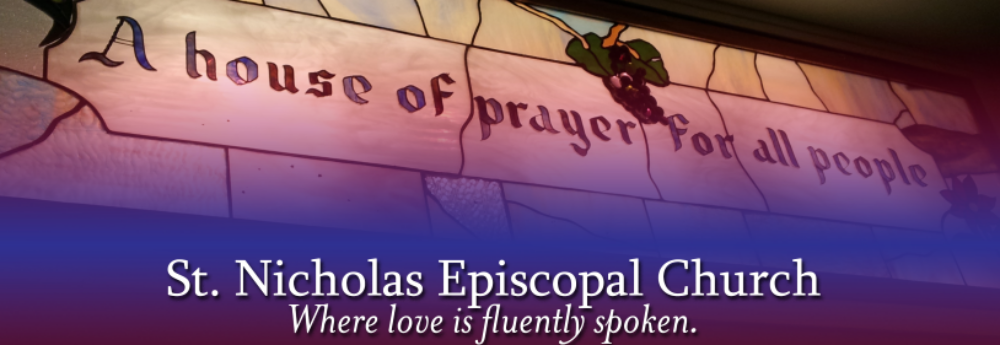As Episcopalians, we are steeped in a rich, musical history that has heralded, and rightly so, much acclaim and notoriety. Thomas Tallis, George Herbert, Charles Wesley, John Merbecke, John Sheppard, Ralph Vaughan, Percy Dearmer, Margaret Street, Graham and Betty Pulkingham, George Mims, a few names that merely scratch the surface amongst the “who’s who” in Anglican/Episcopal Church music. However, at times, and sadly so, this musical accomplishment goes unnoticed and under-appreciated. At St. Nicholas, we work at incorporating several musical traditions, embracing the historical background and musical styes of other faith communities while implementing and basking in our unique and beautiful Anglican/Episcopal musical heritage.
On March 3, our choir endeavored and succeeded in performing a most hauntingly beautiful piece of music, “Libera Me” from Requiem by Gabriel Fauré.
Fauré’s Requiem has a much deeper and notable history; a history worth sharing. So, without any further ado, enjoy this story — submitted by Bob DeHaven — of how Requiem came to be.
Gabriel Fauré(1845 -1924) was a composer, organist, pianist and teacher. He was one of the foremost French composers of his generation, and his musical style influenced many 20th-century composers. Among his best-known works is his Requiem, first published in 1900. The original version of Requiemcontained just four movements, and expanded several times. Part VI, Libera Me, which introduced a whiff of brimstone previously missing, was originally written as a stand-alone work in 1877. It was added to the Requiem by the time of its first publication in 1900.
Fauré was born into a cultured but not especially musical family. His talent became clear when he was a small boy. Perhaps one of the most haunting images from his life is that of the old blind woman sitting in the chapel adjoining the Ecole Normale at Montgauzy, listening raptly to the little boy playing harmonium for hours on end. At that point, young Gabriel had had no musical training, but simply loved the sound of the instrument, and so played with it, seeking those combinations most pleasing to the ear. And the old lady returned, again and again sitting in the otherwise empty chapel to listen and chat with the boy and give him advice. Eventually she told his father, who taught at the school, about his gift for music.
A lifetime later, in a letter written when he was almost as close to the end of his life as that little boy in Montgauzy had been to the beginning, Fauré recalled the famous work he’d composed in the middle of his life. The Requiem, he wrote, was created purely “for the pleasure of it.” But in taking up that work in the fall of 1887, it was natural and inevitable that his thoughts would turn to things of the spirit, to the fact of his own mortality, and especially to recollections of the loved ones he had lost. This included his father, who died in 1885 (his mother died just as he was close to completing the Requiem, though he was unable to finish it in time for her funeral).
I can’t help but feel that Fauré must have thought, too, of the old blind woman, by then long dead, whose name is now lost to posterity (had he forgotten it? Did he ever know it in the first place?), the woman who, by listening to him so intently, affirmed the value of his childhood musical explorations. What an extraordinary gift. One can’t help but wonder if Fauré sensed her hovering in the back of his imagination, listening to all the music he wrote, ever after.
Fauré himself said of the work, “Everything I managed to entertain by way of religious illusion I put into my Requiem, which moreover is dominated from beginning to end by a very human feeling of faith in eternal rest.” He told an interviewer, “It has been said that my Requiem does not express the fear of death and someone has called it a lullaby of death. But it is thus that I see death: as a happy deliverance, an aspiration towards happiness above, rather than as a painful experience.”
>Look for our choir to sing another piece, Sanctus, from
Requiem on Palm Sunday, along with Pieta by Joseph Martin.
